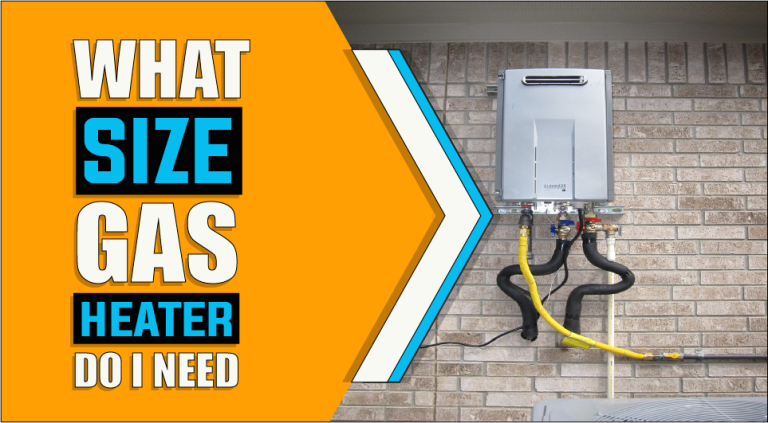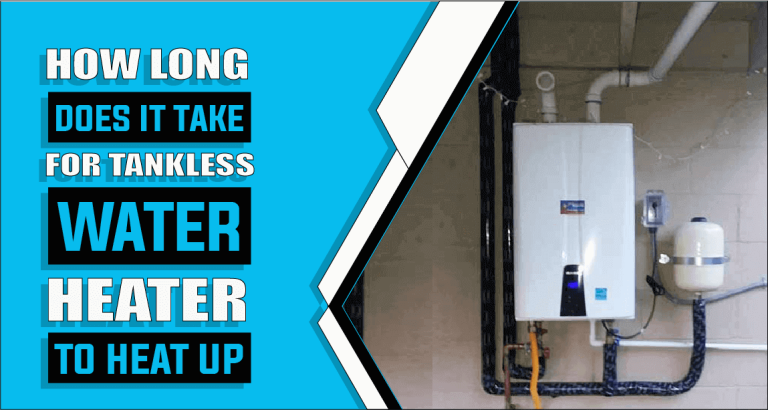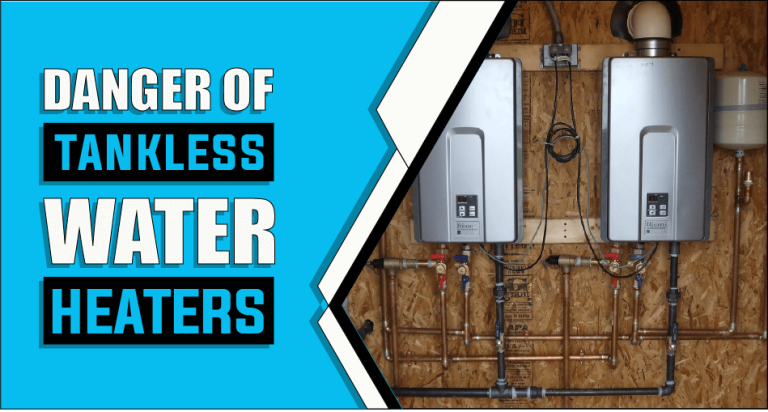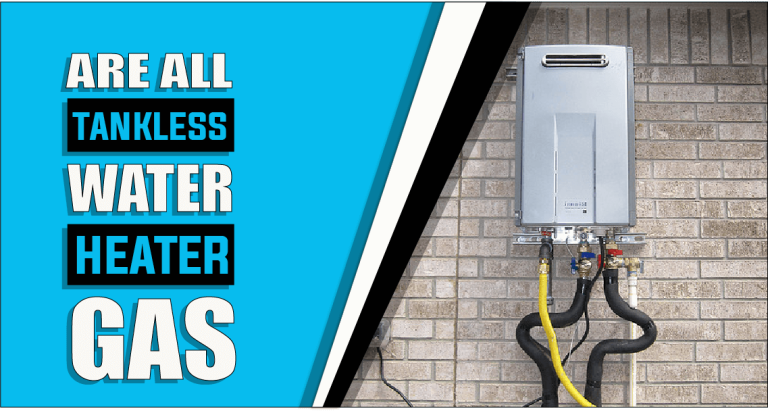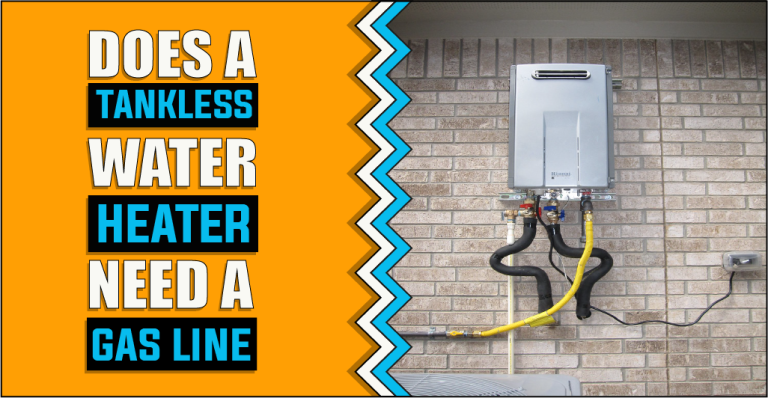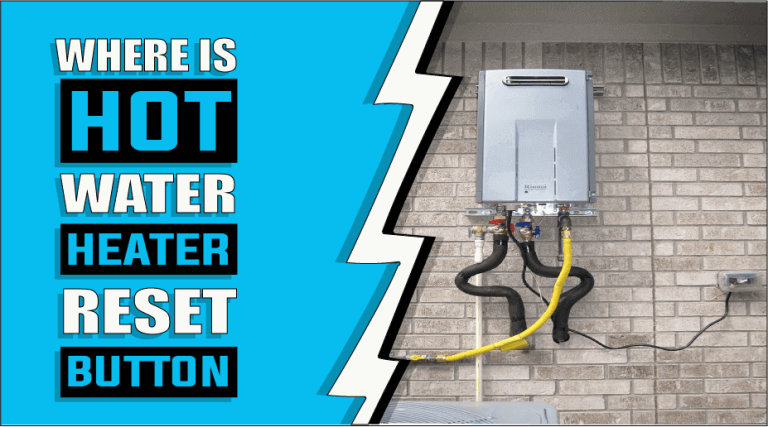Is Tankless Water Heaters Worth It – The Truth Reveals
Do you ever find yourself wanting hot water on demand and unlimited access to hot showers? If so, then a tankless water heater may be the perfect solution! Tankless water heaters are growing in popularity year after year for their abundance of benefits. From energy-saving qualities to smaller space requirements, it’s no surprise why so many homeowners are switching to using tankless options. But is investing in a tankless water heater worth the cost and effort? To help answer this question, this blog post takes an in-depth look at tankless water heaters their pros, cons, and cost savings potential so that you can make an informed decision. So if you’re curious about is tankless water heaters worth it, we invite you to keep Reading!
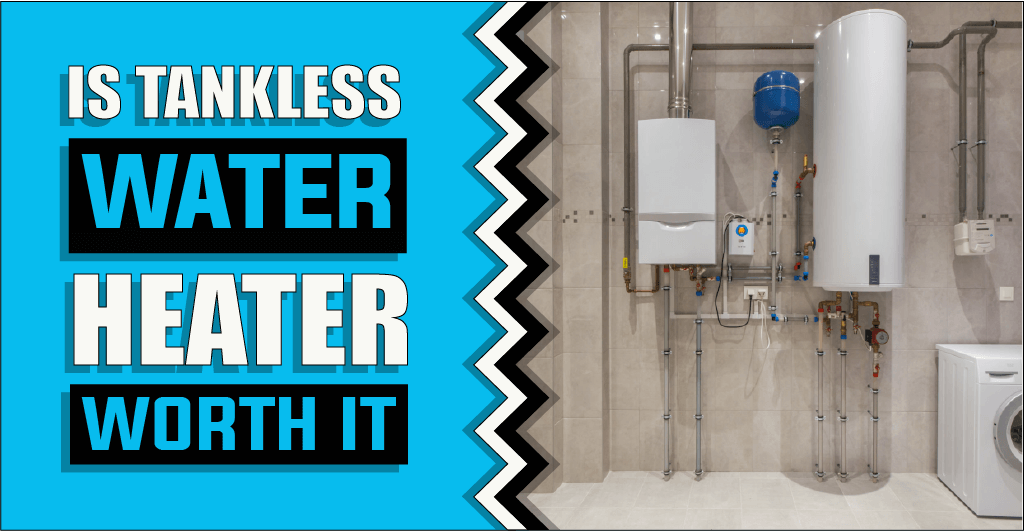
Let’s explore is tankless water heaters worth it.
Yes, tankless water heaters are worth it. Tankless water heaters have superior energy efficiency that is worth the investment. They use much less energy than tank-style water heaters because they only activate when hot water is needed, and shut off when there is no demand for hot water. This can save you up to 30% on your energy bill each month! Another benefit of tankless water heaters is that they last longer as long as 20 years or more compared to traditional tanks which may only last 10 years. Thus investing in a tankless water heater now can save you money in the future since it won’t need to be replaced as frequently.
If you are still wondering if tankless water heaters are worth it, there are a few questions you should ask yourself. First, how much energy does your family use for hot water each month? If the amount is high, investing in a tankless water heater can save money on energy costs over time. Second, what is your budget like? Tankless water heaters may be more expensive upfront, but they are built to last and will save you money. Lastly, consider which type of best tankless water heater best suits your needs, electric tankless water heaters may be best for smaller households while gas tankless water heaters tend to be better suited to larger households with higher demand for hot water.
In closure, tankless water heaters are worth it for many families. If you have a high demand for hot water and want to save money on monthly energy costs, investing in one of these energy-efficient tankless water heaters may be the best decision for your family.
How Much Do Tankless Water Heaters Costs?
The cost of tankless water heaters can vary greatly depending on the type and size of the unit, as well as installation considerations.
1: Cost of Gas-powered Heaters
Gas-powered tankless water heaters are a great option for those who have access to natural gas and are looking to reduce their energy costs in the long run. The cost of these units can range from around $600 – $1,800 depending on the size, efficiency rating, and features. Some of the features that can affect the price include digital displays, advanced temperature control systems, and durable construction materials.
2: Cost of Electric Tankless Water Heaters
The cost of electric tankless units generally ranges from $200 – $1,000 based on the size, power rating, and features included with the unit. Furthermore, you should factor in additional costs such as new circuit breakers since electric tankless water heaters require higher amperage than traditional storage tanks do.
3: More About Money Savings
According to the U.S. Dept. of Energy, tankless water heaters are an efficient and cost-effective way to heat your home’s water supply. Not only do these types of heaters save energy and money, but they also provide greater convenience than traditional tank models as they do not require regular maintenance or repairs.
- Tankless water heaters use less energy than conventional water heaters and can save up to $25-$107 per year in energy costs.
- The amount of savings you experience depends upon your hot water usage, if your needs are low less than 41 gallons per day then a tankless model will be 24-34% more efficient; if your hot water usage is high around 86 gallons per day then the efficiency increases 8-14%.
- Another great advantage of using a tankless system is that you can install an on-demand unit at each hot water faucet which will offer even greater savings – up to 27%-50%. This means that you do not need to wait for stored hot water to come through the pipes before taking a shower.
Cost Savings of Tankless Water Heaters
When it comes to energy efficiency and cost savings, tankless water heaters have the advantage over traditional tank-style water heaters.
1: Initial Up-Front Cost
Tankless water heaters have higher initial up-front costs which can be a deterrent for some potential buyers. However, if you are looking to save money in the long run, this extra expense may be worth it. Generally, tankless water heaters cost between $800 and $2,000 or more. This initial cost covers the purchase of the heater itself as well as installation fees and other related costs such as supplies and labor.
2: Installation Fees and Other Related Costs
When purchasing and budgeting for a tankless water heater system, there are additional installation fees and related costs associated with its use that must be taken into consideration. The installation fee for a tankless water heater depends largely on the size of your home and the complexity of the job at hand. The price range can start at around $500 to upwards of $2,000. Other related costs include any necessary supplies such as piping materials, connectors, and fittings which can add up quickly.
3: Potential Savings on Energy Bills Over Time
One of the major advantages of installing a tankless water heater system is that they have been proven to reduce energy consumption over time leading to significant savings on monthly utility bills. Tankless systems only heat water when it’s needed; thus leading to energy savings over time due to increased efficiency.
4: Benefits for Large Families With Multiple Use At Once
For families with multiple showers or bathrooms in use at once, one advantage is that one tankless system can supply an unlimited amount of hot water throughout any number of bathrooms or fixtures simultaneously without ever running out, unlike traditional storage tank systems which are limited by their capacity.
Advantages of Tankless Water Heaters Over Traditional Models
The benefits of tankless water heaters over traditional tank-style water heaters are many and varied.
1: Ability to Provide Hot Water on Demand, Eliminating Wait Times
In terms of energy efficiency, tankless units can save homeowners considerable amounts on their monthly electric bills by eliminating the need to constantly keep a large tank of heated water stored at all times. Tankless models only heat water when it is needed, meaning that when hot water taps are turned off, no additional energy is used to maintain a warm reservoir in the tank.
2: Space Savings In a Home due to Tankless Compact Design
The most obvious advantage of tankless water heaters is that they are much more compact than traditional models. This helps to save a considerable amount of space in the home, as tankless models can be mounted on walls or hidden away out of sight.
3: Longer Lifespan, Less Frequent Replacement Needs
In addition to being more energy efficient, tankless models also have a much longer lifespan than their traditional counterparts. The average tankless unit has been known to last up to 10 to 20 years tanks without experiencing decreased performance or efficiency. This extended lifespan makes them a wise investment for those looking to save money on replacements and repair costs in the long run.
4: Highly Equipped with Advanced Features
Finally, many modern tankless units come equipped with advanced features such as temperature control technology which allows users to set the exact temperature they desire their hot water outputted at rather than having it preset by the manufacturer like with most traditional models. Not only does this offer greater convenience but it also helps increase safety by preventing scalding incidents from occurring due to excessively hot temperatures from coming out of taps unexpectedly.
Overall, there are many advantages that tankless units offer over traditional tanks which make them an attractive option for anyone looking for an efficient and effective way of heating their home’s hot water supply economically while still enjoying the convenience and extra features like precise temperature control not offered with conventional tanks.
Disadvantages of Tankless Water Heaters
Despite all the advantages that tankless water heaters have to offer, some drawbacks should be considered before a homeowner makes the final decision to purchase one.
1: Installation Challenges
The installation of a tankless water heater is often more complicated than that of a traditional water tank. Tankless models require careful planning beforehand, as well as specialized knowledge. For example, the unit must be correctly sized for the home to ensure that it can provide an adequate and continuous flow of hot water. Additionally, many tankless models require specific venting or exhaust systems installed to safely operate and function properly.
2: Repair Costs
Repairing a tankless system is generally more difficult than repairing a traditional water heater because they are built differently and use special parts. If repairs become necessary, they usually require special tools and knowledge from technicians with experience working on these kinds of units. So they tend to cost more than traditional tanks when it comes time for repair or replacement of components.
In conclusion, while tankless water heaters are becoming increasingly popular thanks to their efficient energy consumption capabilities; there are certainly downsides associated with them too – such as increased complexity resulting in higher installation costs. All things considered though; it’s important for homeowners who wish to invest in new technology such as this to keep all possible associated expenses in mind before making large purchases, ensuring that all upfront costs don’t end up outweighing any long-term savings down the road!
Frequently Asked Questions
The best way to determine if a tankless water heater is best for your home is to speak with an experienced plumber or HVAC specialist who can evaluate your current system and recommend the best solution.
Yes, tankless water heaters are very energy efficient as they only heat the water when it is needed, rather than continuously heating and reheating stored water. This can result in substantial energy savings over the life of the unit.
While tankless water heater installation costs are typically higher than traditional models, they are often more cost-effective in the long run due to their longer life spans and lower energy bills. In the end, whether or not a tankless water heater is worth it will depend on your individual needs and budget – but if you’re in the market for an upgrade to your hot water system, this innovative technology could certainly be worth considering!
Tankless water heaters are designed to last for 20 years or more, around twice as long as traditional tank models. This is one of the most compelling benefits of choosing a tankless model it may cost more upfront but you’ll enjoy savings over the long-term thanks to its longevity!
Conclusion
We hope you have found this article helpful in answering the question: Are tankless water heaters worth it? At the end of the day, whether or not tankless water heaters are worth it will depend on your individual needs and budget. If you’re in the market for an upgrade to your hot water system, consider upgrading to a tankless model! Not only do these systems provide cost savings upfront and potentially lower monthly energy bills but also improved safety features, more space-efficient installation options, and longer-lasting performance compared to traditional storage tanks. With all these benefits rolled into one solution, why not make the switch today?
Ella John is passionate about helping her readers make the best choice when purchasing a heater. She understands that selecting a heater can be difficult and strives to provide information to help make the decision easier. Ella’s website, Heatersinfo.com, provides valuable insight into heating trends and types of heaters and tips on how to care for them. She also advises selecting the right heater based on individual needs and preferences. Her expertise in electronics makes her an excellent source of knowledge, and she is confident that anyone who visits her website will find the perfect heater information for their needs. Ella’s dedication to helping others make educated decisions about buying the right heater is unparalleled, and she hopes to continue offering her expertise for many years. With Ella’s help, finding the perfect heater can be a breeze!

